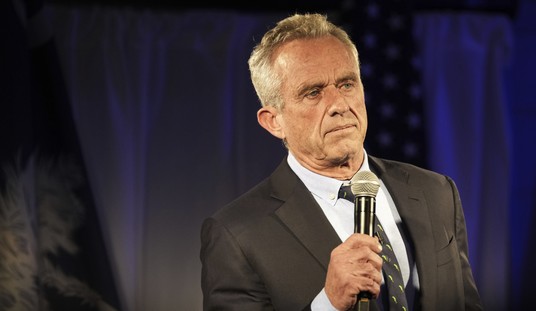We hear a lot about a clash of cultures, but in fact, most people never experience a clash of cultures. This is a good thing because though cultures are not innate (and I’m tired of the idiots who think they are. If I adopted a Chinese baby tomorrow, its personality might not be the same as my kids’ but its culture would be), cultures are fairly intractable. By which I mean we absorb values and ideas from our culture often before we can even speak, much less articulate the values. And once absorbed, they become “what everybody knows,” so prevalent and certain that you never examine it, and are never sure where it came from or what it means. They just know it is, as immutable as air and water.
And it is, as long as you stay within the culture. Only a few individuals (like me) who have for whatever reason had to acculturate (I wrote about it here) see the cultures, because they had to make a conscious choice. Also, to be honest, acculturating hurts. It’s not something humans are supposed to do. We’re social animals and many of the things we think are inherently human are actually learned and therefore cultural, such as walking on two legs and speaking: for proof of this, see feral children.
What most people mean when they talk about “a clash of cultures” is actually a clash between two subcultures — say, corporate America and ghetto. This is difficult enough but can be overcome because one is at least aware of the other, even if the habits of one are completely different from the other’s.
When you’re dealing with completely different cultures suddenly clashing, it’s completely different. You see, the people in each of the cultures are not aware that they’re having a cultural conflict. They just interpret other people’s actions according to the norms of their culture. Internally, at a gut level, well before thought gets involved, we assume everyone has the same basic assumptions we have, and therefore we judge other cultures as we judge our own.
Take a really simple one, between (no, trust me) cultures that aren’t all that different, like the culture I was born in (Portugal) and the culture here. It never occurred to my father to explain to my husband what all the money in the car registration envelope was for. The system of bribing the police (like the Spanish Mordida) is so ingrained it simply never occurred to my father – a well-read and learned man – that it wasn’t also universal in the U.S. If I hadn’t been there when my husband found the money (we were never pulled over, so it was never needed), my poor husband would have been wondering if it was traditional, in Portugal, to give your son-in-law money inside car registration envelopes. (Yes, I might have laughed.)
That kind of little misunderstanding is common with tourists. It can be tragic too if you – say – misunderstand the signs for “available for sale” as it pertains to a woman in a culture where men are aggressive and possessive.
But it is when two whole cultures collide that things go very, very wrong.
I could use the example of the clash between white settlers and Native populations in America, but let’s instead take a clash in which few people reading this have an emotional investment. (That, too, is an important part of the culture. Sometimes you know things “that just ain’t so” so well you don’t actually hear what’s being said, but rather what’s in your head. We all do this. It’s part of being human.)
For my example, I shall take the colonization of South Africa by the Boers (and the English) instead.
It is assumed in America, particularly by a certain stripe of leftist, that the Zulus were, like the native tribes of America, native to the region where they clashed with white colonizers. (This is also not true of some Amerindian tribes, but that’s another story.) And because they’re assumed to be native, they’re assumed to have the right to land. Or, let’s admit it, because their skin is black, they’re assumed to have a right to land anywhere in Africa.
This is – dare we say it? – a bizarrely racist assumption. Africa was not a continent-wide culture singing Kumbaya, but as with any pre-modern-travel culture, a patchwork of tribes and peoples, often at war with each other.
The truth is that the Zulus arrived in South Africa, from somewhere in the middle of the continent (leaving behind piles of corpses to mark their battles of conquest. Sometimes piles so large they created hills), approximately at the same time as white colonizers.
The difference between the two groups was not that one was a pastoralist, peaceful group (snort, giggle. I have lost touch with my Zulu friends, but I know their expressions if they read this), and the other war-like westerners. No, the difference was the way each of them saw the world.
The Zulus had no concept of the nation state. They were tribalists. There are assumptions to tribal clashes, and from what I can determine, universally, the ideas of tribal humans are roughly the same. One of the universals is that when meeting a new tribe moving into territory to which you have laid or hope to lay claim, you commit atrocities: you rape, mutilate and kill women, children, and pets in as horrific a way as you can think of.
If your clash is with another tribe, whose software-in-head is like yours, they know you’re giving them a sample of what you can do. So, if they know they’re weaker, they’ll run screaming or surrender and you win with relatively little bloodshed. This is not limited to Africa. It was part of the way the Mongols won Eastern Europe.
The Zulus were very good at this, which is why they had forged a path in fire and blood from the middle of Africa to its Southern tip.
The problem is that the people they were dealing with were Christian, literate people, so far from the concept of tribes (at least on the clash between level) that the closest they came to it were clashes between nations. Worse, they were people who believed in larger groups like “race” and “civilization.” Not worse for the white colonizers, but much, much worse for the Zulus, who could not conceive of the number of people they were picking a fight with, nor of things like “newspapers” which distributed news of their atrocities to a world that hadn’t fought like that in living — or even, really, written — memory and had no clue their tribal ancestors had been much like that.
Which is why the atrocities perpetrated by the Zulus on the first, isolated colonists, instead of scaring whites off that part of Africa, made the whites question whether Zulus were really human, whether they had souls, whether they could ever be civilized.
When the first massacre didn’t work, the Zulus had only one playbook: escalate. Which brought on them the full fury of the civilized world.
In the end, they couldn’t win. Which is what they were trying to do. They weren’t bloodthirsty savages (well, they were no more bloodthirsty than other humans) wanting to exterminate everyone who looked different. They were tribal humans trying to win what they thought was a tribal war by the only means they knew. Once they lost and became somewhat integrated in the Western civilization (they still have a lot of their tribal structures, but… well, one of my Zulu friends was an engineer), it became obvious they were just humans like other humans and could learn to fit in as other humans: not the bloodthirsty monsters they projected onto the minds of those Westerners who first met them.
What does this have to do with Islam? I’m glad you asked.
Next up: How to Stop Terrorists and Allow Islam to Westernize.








Join the conversation as a VIP Member